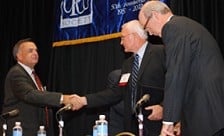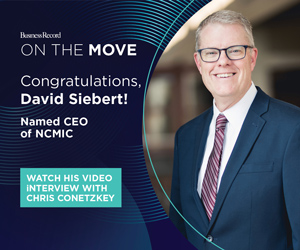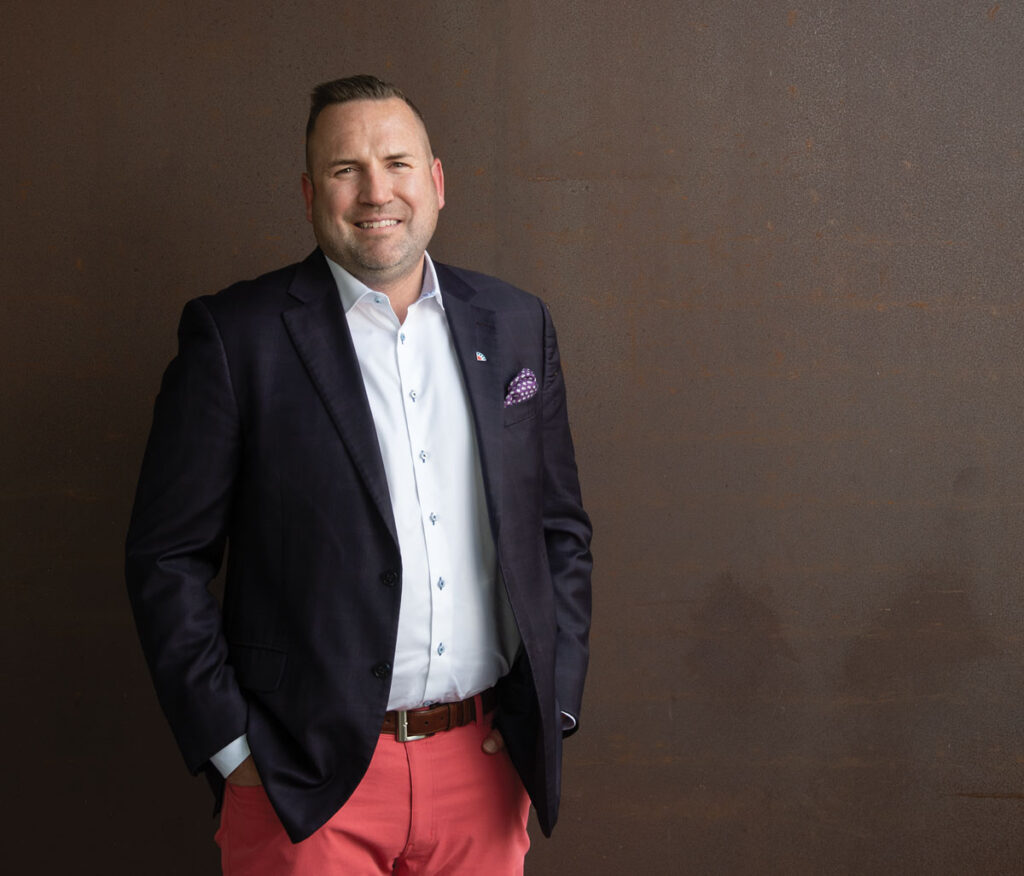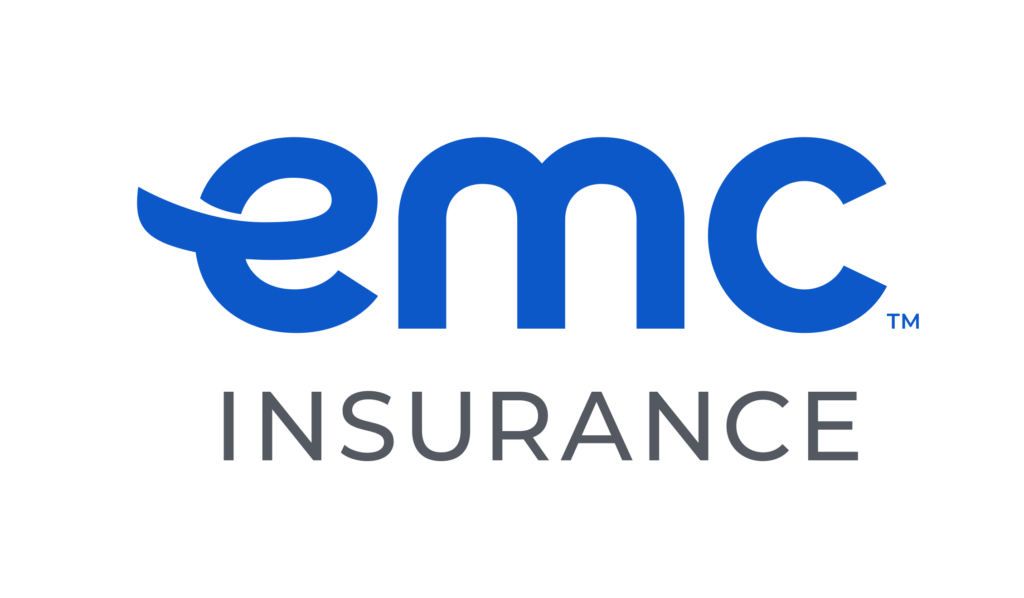CEOs share concerns in roundtable discussion

Insurance executive Steve Crawford realizes his industry needs to do a better job of recruiting and grooming young professionals for future leadership positions.
“I think one of the most significant challenges we face is perpetuation,” said Crawford, who was named president and CEO of Grinnell Mutual Reinsurance Co. at the beginning of this year.
“I look around our at our management staff meetings right now and there are not a lot of young people,” he said. “We have a lot of Baby Boomers running the place right now, and 10 years from now, that’s going to have to change a lot as they retire. The idea of having to completely restaff your management team is going to be a challenge.”
Soft market
Workforce issues were among the top-of-mind topics that Crawford and CEOs of other Central Iowa-based property and casualty insurers discussed in a roundtable forum during the Iowa Insurance Day conference last week in Des Moines. Joining him were Bruce Kelley, president and CEO of EMC Insurance Cos., and Kim Austen, president and chief operating officer of Allied Insurance, a Des Moines-based division of Nationwide Mutual Insurance Co. Richard Keith, president and CEO of The IMT Group, moderated the panel.
The forum was part of the annual meeting of the Iowa chapter of the Chartered Property Casualty Underwriters (CPCU) Society. The chapter is the international organization’s fourth-largest, with more than 600 members in the state.
One of the top questions in the industry is when the so-called soft market will end. For a number of years, the property and casualty market has had plentiful products and relatively low premiums, an environment favorable for consumers but not for insurance companies.
Austen said he believes there’s no significant improvement ahead in the soft P&C market.
“I think for all (property and casualty) companies, trying to figure out how to differentiate themselves somehow in the service or product space will be an important strategy for them,” he said. “It’s going to be tough, I think, for a long time to get much growth.”
Austen said he expects to see more mergers within the P&C industry in the next several years.
“There’s going to be a lot of consolidation,” he said. “There have been agencies in the past couple of decades that merge or gobble each other up in the hopes of becoming more efficient; it doesn’t always work that way.”
From an insurer’s perspective, the market won’t improve until the surplus in the market declines, Kelley said. Government intervention may have prolonged the soft market, he said.
“If the market had been allowed to work in September of 2008 when (American International Group Inc.) lost all their gambling bets and (The Hartford Financial Services Group) also had problems – if those companies had not been bailed out – that may have been enough to turn the market,” he said.
The devil you know
Each CEO was also asked his view on the issue of federal versus state regulation of insurance. The Dodd-Frank Wall Street Reform and Consumer Protection Act created a Federal Insurance Office within the U.S. Department of the Treasury with authority to “monitor all aspects of the insurance industry.”
“I don’t think it’s an either/or question,” Kelley said. “It’s how it can be blended. We at EMC generally support state control of insurance because we believe the states have a better (understanding) of it. … To have the federal government do too much regulation might create duplicative or contradictory regulation.”
Crawford said Grinnell Mutual strongly supports state regulation. “Sometimes (state regulators) drive us crazy,” he said, “but on the other hand, we know them and we talk with them, and our relationship with the state insurance department hopefully can be good.”
Allied, on the other hand, is strongly in favor of federal regulation, Austen said.
“The way I look at it, it’s expensive for the consumer and for the companies to deal with multiple states,” he said. “If we went to more federal regulation, we might not like what we get, that’s true, but in the long term it will be less expensive.”
Technology is another universal challenge. With increasingly mobile technology, consumers’ expectations are rising, Austen said.
Strategic thinking
“As we look down the road, it’s important for us as an industry to think about the changing consumer needs and wants in our country,” he said. “We’re an industry that’s built on a distribution model that isn’t expensive, and it’s a good one. But consumers are going to want more service, when they want it, how they want it.”
Insurers also need to think strategically about appealing to new talent, the CEOs said.
Though employment in the insurance industry is down, salaries are up, Crawford noted, which suggests that companies are getting the “best and brightest.”
“So when we talk about perpetuation, I think the opportunities are tremendous for a young person to make a mark in this industry,” he said. Once they’re on board, Keith said, “I always tell that young person, ‘Always care. If you’ve got ideas or things you want to do, we need to hear about them.’”
Iowa-based insurance companies represent a “vast treasure” in the state that needs to be guarded with good leadership, Kelley said.
“I’ve seen a lot of companies go, and once they’re gone, we lose a lot of real good jobs,” he said. “It’s extremely important for Iowa to keep these jobs and keep these organizations running, because we could lose them if there’s a failure in leadership.”











